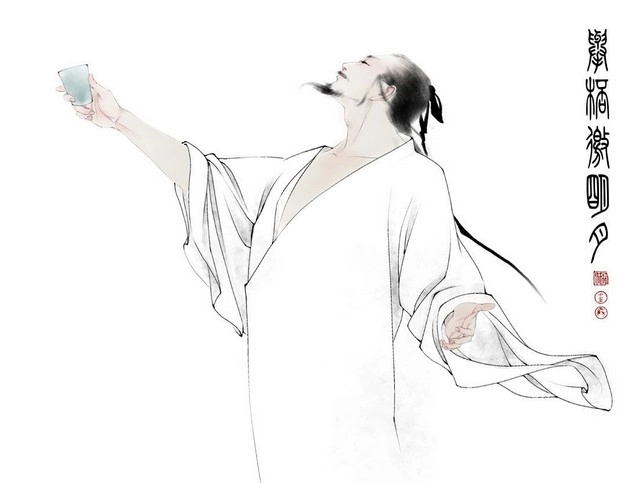Poet-immortal - Li Bai
Li Bai (701-december 762), with the word Taibai, was named Qinglian resident and "relegated immortal". The great romantic poet of the Tang Dynasty was praised as "poetic immortal" by later generations and was called "Li Du" together with Du Fu. In order to distinguish from the other two poets Li Shangyin and Du Mu, namely "little Li Du", Du Fu and Li Bai were also called "big Li Du". According to the old book of Tang Dynasty, Li Bai was born in Shandong. According to the new book of Tang Dynasty, Li Bai was the ninth grandson of emperor Xingsheng, who was the same ancestor of all kings of Li Tang Dynasty. He is frank and generous, likes drinking, writing poetry and making friends.

Li Bai lived in the prosperous Tang Dynasty. He was heroic, loved the mountains and rivers of the motherland, traveled all over the north and south, and wrote a large number of magnificent poems praising famous mountains and rivers. His poems are bold and unrestrained, fresh and elegant, rich in imagination, wonderful in artistic conception and light in language. People call him "poetic Fairy". Li Bai's poems not only have typical romantic spirit, but also have typical romantic artistic characteristics from image shaping, material intake, genre selection and the use of various artistic techniques.
Li Bai successfully shapes himself, strongly expresses himself and highlights the unique personality of the lyric hero, so his poetry has distinct romantic characteristics. He likes to express himself in a majestic image, and express his feelings without concealment or restraint in his poems.
Bold and unrestrained, fresh and elegant, rich imagination, wonderful artistic conception, wonderful language, romanticism and clear intention.
Li Bai has the collection of Li Taibai, which is handed down from generation to generation. Most of his poems are written when drunk. His representative works include "looking at Lushan waterfall", "difficult journey", "difficult road in Shu", "going to wine" and "leaving Baidi city early". Li Bai's Ci and Fu have been biographed by Song people (such as Wen Ying's record of Hunan mountains and fields). In terms of its pioneering significance and artistic achievements, "Li Bai's Ci" enjoys a very high status.